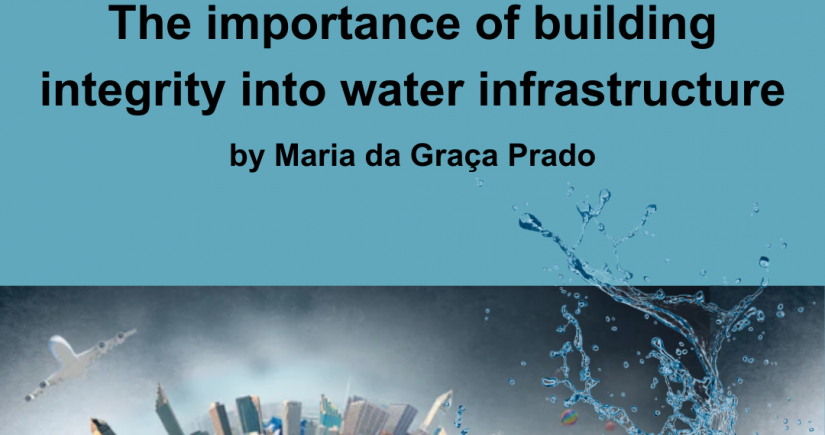Access to clean water is a significant challenge worldwide. This is particularly so in the Global South, where the vast majority of the world’s population lives. In Uganda, roughly 8 million people are currently without access to safe water, while a further 27 million lack access to adequate sanitation. African nations are not alone in this, with places like Mumbai struggling despite a ‘water for all’ policy deployed in 2022, and São Paulo already expanding storage capacity to counter for severe droughts predicted in the near future.
As the climate emergency intensifies, the situation is projected to worsen, heightening the threats to water security, human well-being, and ecosystem health. Research shows that despite contributing less to climate emissions, the Global South are disproportionately impacted by climate change. To prevent an imminent global clean water scarcity crisis, action must be taken to address and mitigate potential shortages that could have critical consequences in lives and livelihoods.
Resilient infrastructure is key to alleviate the water crisis
Infrastructure plays a critical role in both mitigating and adapting to water scarcity. This includes increasing capacity to store and transport water efficiently, and developing solutions to reuse wastewater, monitor droughts and improve water efficiency in key sectors such as agriculture. Adequate water infrastructure is essential for building adaptive capacity and enhancing resilience against climate and water scarcity.
Although many actions can be implemented, without transparency in the governance of water infrastructure investment, the benefits can be inevitably watered down.
A lack of transparency is creating grey areas for integrity
Lack of transparency is a critical obstacle. This creates the opportunity for stakeholders in the sectors, such as water suppliers, regulators and contractors, to undermine the integrity of the systems intended to alleviate the water crisis. Lack of transparency can manifest in various ways, including gaps in the publication of data and information regarding water infrastructure projects, and opaque decision-making processes conducted with little accountability.
Compromised integrity in water projects can lead to severe consequences: poor-quality infrastructure that fails to meet urgent needs, inflated project costs, prolonged timelines to deliver critical projects, and reduced value for money. These have disproportionate effect on the most vulnerable in society who already suffer from accessibility issues.
Creating a tool to restore integrity in water planning and decision-making
Recently CoST, the Infrastructure Transparency Initiative collaborated with Water Integrity Network (WIN) and the Inter-American Development Bank to develop an infrastructure integrity tool designed to strengthen transparency in water planning and decision-making. The Framework for Integrity in Infrastructure Planning (FIIP) helps stakeholders identify red flags in the planning processes for water infrastructure, including undue influence, inadequate consultation or feasibility studies and misuse of budgets.
By employing a blend of risk analysis and a pilot test, we have identified a series of indicators and corresponding data points that concentrate on the early phases of infrastructure development. The focus on the initial stages of infrastructure delivery is deliberate. Transparency and accountability during the initial stages of decision-making and planning are crucial for preventing bias project selection and ensuring social needs are prioritized.
The data points cover critical areas in water planning such as project beneficiaries, project location, the timing of approval, vetting systems in place, engagement processes, environmental and social impact, project feasibility and budget allocation. These observable red flags provide stakeholders with objective metrics to understand and assess the planning and decision-making process. For civil society, this serves as a valuable tool to challenge questionable investment decisions. For procuring entities, the tool can instil rigor in the preparatory processes, supporting the development of a robust portfolio of resilient water projects. This tool can be used to monitor the implementation of vital water infrastructure projects worldwide.
Where do we go from here?
It is clear there are many challenges facing humankind as the climate emergency intensifies. Recent events show that water continue to be used as a tool of conflict. While we must continue to reduce our carbon emissions and push to remove the CO² already in our atmosphere, we must not neglect the cascading impact of events on water scarcity, as well as the critical role of infrastructure in adapting and mitigating these effects. Ensuring planning and decision-making regarding water infrastructure investment is transparent and open to public scrutiny is essential to safeguard vulnerable communities worldwide. This is also critical to guarantee value for money and value for many from public investment, as well as to achieving the Sustainable Development Goals (SDGs).
The Framework for Integrity in Infrastructure Planning (FIIP) is currently being tested. Together with WIN, CoST welcomes collaboration with procurement and implementation agencies interested in understanding and applying the framework.
Maria Prado is CoST’S Senior Policy & Research Adviser. Read more about her work.
